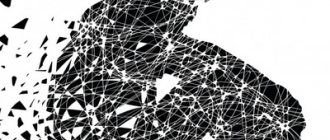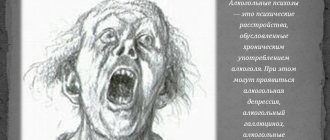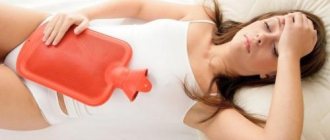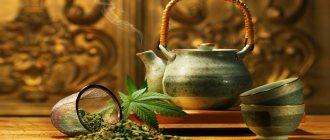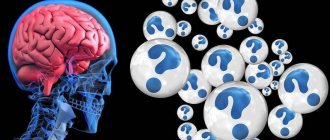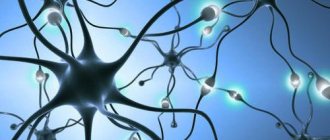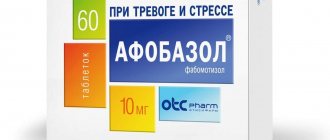Panic attacks after alcohol occur both when alcohol is abused and when a minimum dose of ethanol enters the body. Alcohol, on the one hand, is an antidepressant that blocks the production of adrenaline (the hormone of fear), on the other hand, it is the cause of internal disagreements between a person’s personality and his subconscious, which “says” that alcohol is poison.
What to do if you have panic attacks
First of all, you should look for somatic pathology, that is, a disease in the body.
This may be temporal autonomic elements in temporal lobe epilepsy (EEG and MRI of the brain are necessary). It may also be a manifestation of anemia (anemia), so a general blood test and a blood test for serum iron are necessary.
To exclude dysfunction of the thyroid gland (thyrotoxicosis and hypothyroidism), it is necessary to perform an ultrasound, donate blood for thyroid-stimulating hormone (TSH) and free T4 in the blood.
To exclude manifestations of pheochromocytoma and corticosteroma - ultrasound of the abdominal organs, 24-hour urine analysis for cortisol, catecholamines and metanephrines. To exclude heart disease - ECG, Holter ECG monitoring.
And only after all possible somatic pathologies have been excluded, treatment for true panic attacks begins. Usually, upon initial treatment, the psychotherapist prescribes almost all of the listed examinations. But often patients already come to the appointment with a bunch of conclusions from other specialists.
Preventive actions
- Treatment of depressive and neurosis-like disorders by a psychotherapist. Don’t hesitate to contact us, it’s anonymous; this doctor does not register patients with the psychoneurological clinic.
- Treatment of somatic pathology that leads to panic attacks (if any).
- Regular physical activity - gymnastics, running, cycling, yoga. Charging should be daily!
- Massotherapy.
- Master autogenic training (self-hypnosis, meditation) - it will also help during an attack.
- Adequate sleep: at least 8 hours a day.
- Proper nutrition with a reduction or elimination of coffee, alcohol, spicy and smoked foods.
In order not to encounter panic attacks in the future after a fun evening (especially if the latter have already occurred), it is worth getting acquainted with the rules of prevention. It is worth remembering that this syndrome has a tendency to develop and intensify accompanying symptoms. For prevention purposes, it is recommended to use the following:
- undergo therapeutic massage procedures;
- regularly devote time to sports;
- eliminate alcohol consumption or significantly reduce its dose;
- ensure yourself a strong and healthy night's rest (at least 8–10 hours);
- adjust your diet by eliminating fatty, smoked and fried foods;
- contact a good neuropsychiatrist, the doctor will help identify existing problems and relieve tension.
Panic attacks and alcohol. Does alcohol relieve or worsen anxiety?
Can drinking alcohol trigger panic attacks? Is it possible to drown out anxiety with alcohol? The situation is not clear-cut. Let's look at the main points.
A person suffering from panic attacks begins to take alcohol to prevent an attack, assuming that it will alleviate his condition. At first this is true, but subsequently drinking alcohol does not lead to the expected relief, the frequency of attacks increases, and more alcohol is required to achieve the effect.
And then alcohol ceases to act as a sedative, and the absence of alcohol provokes an attack. The line between a panic attack and a vegetative version of hangover syndrome is lost. Alcohol addiction develops.
Our expert, narcologist Maxim Kirsanov, observed patients with alcohol addiction who, at the peak of withdrawal symptoms, experienced a panic attack, which horrified their relatives with the pretentiousness of their symptoms. Treating alcoholism with panic attacks is extremely difficult.
Alcohol itself is considered a provoking factor in the development of a panic attack in moderate drinkers whose work is associated with stress. As a rule, these are executives, managers, bank employees, and accountants. The so-called “manager syndrome” is nothing more than living under conditions of chronic stress.
Long working hours, a lot of coffee, cigarettes and alcohol, anxiety for various reasons. Many of them, after suffering stress, begin to experience panic attacks in middle age. And for the first time, alcohol acts as a provoking factor; patients themselves note that the attack occurred while intoxicated.
Thus, answering questions from site visitors, let’s summarize briefly.
1. If alcohol provokes a vegetative crisis, we completely exclude it. For what time - look individually. Panic disorder can be temporary or take a chronic form. Therefore, moderate drinkers can return to drinking alcohol after the nervous system has recovered. If panic disorder drags on, we say goodbye to alcohol.
2. Many people try to relieve symptoms by taking dosed alcohol. What this leads to is described above. Alcohol may relieve anxiety for a short time, but later it will only worsen your well-being. Be careful.
3. Change of rhythm of life. As correctly noted in the discussions, ultimately each patient comes to a rhythm of life that prevents the development of panic attacks. This is a healthy lifestyle with regular exercise, diet, avoidance of stress and so on.
4. In any case, if a person experiences episodes of panic, a lump in the throat, a rise in blood pressure, feeling either hot or cold, and there is no gross somatic (bodily) pathology, do not hesitate to contact a psychotherapist. This doctor does not keep any medical records in his work, but he can really help.
In his practice, our expert Maxim Kirsanov often encounters how neurologists treat panic disorders, and only a few can adequately select an antidepressant. The disorder lies in the related field of activity of a neurologist and psychotherapist, which is why there is such frequent confusion in choosing a specialist. Health and good luck to everyone!
Expert author: Maxim Kirsanov, from the site https://pohmelje.ru/panicheskie-ataki-i-alkogol/
Consequences of a hangover
A hangover is nothing more than global poisoning of the body with the breakdown product of alcohol - acetaldehyde. This occurs with excessive consumption of alcohol, when the liver simply does not have time to cope with the load and allows the accumulation of a toxic compound in the body.
With a hangover, not only internal organs are damaged, but also almost the entire nervous system, the psyche and parts of the brain are affected.
The symptoms of a hangover manifest themselves most clearly on the physical level. Most often, a drinker has to deal with such manifestations as:
- frequent urination;
- feverish conditions;
- nausea and vomiting;
- intense sweating;
- sudden jumps in blood pressure, tachycardia;
- soreness in the sternum;
- chills with sudden changes in fever;
- feeling of numbness in the limbs, cramps;
- lethargy, daytime drowsiness and night insomnia;
- severe migraine, dizziness to the point of fainting.
A hangover isn't just about physical ailments. Some deviations in mental state are also common. They are expressed as follows:
- hallucinations;
- panic attacks;
- causeless fear;
- suicidal thoughts;
- feeling of persecution;
- increased anxiety;
- problems with concentration;
- feeling of vague anxiety, guilt.
The severe surges in pressure that a patient with VSD has to face after drinking alcohol bring such strong overloads to the person that with even minor physical effort, the patient can have a heart attack or stroke.
https://www.youtube.com/watch?v=8e20Uqv7quY
But, if the combination of signs of dystonia and alcohol leads to a significant jump in blood pressure, what will happen if a person has hypotension (low blood pressure).
Exacerbation of hangover syndrome
In this case, indeed, a glass of good wine can slightly increase blood pressure levels and the person’s usual weakness in this case will go away. But at the same time the patient will have to face:
- severe migraine;
- palpable tingling in the heart area;
- irritability, sometimes reaching the point of aggressiveness.
It is especially dangerous to drink beer if you have VSD. Many people believe that due to the small percentage of ethanol, this drink will not bring much harm. Unfortunately, this opinion is wrong. After all, beer, unlike vodka or cognac, is consumed by humans in large quantities; its consumption is calculated in liters.
In this case, the person will have to deal with a particularly severe and painful hangover. Sometimes this condition is so serious in its severity that it takes a person to bed for a long time, and in some cases even the help of doctors is required.
Panic attacks
This is another dangerous consequence of the combination of alcohol and symptoms of VSD. Doctors classify a panic attack as a sudden and acute attack that occurs against the background of very poor health. With the development of this syndrome, the patient experiences symptoms such as:
- loss of consciousness;
- a sharp jump in blood pressure;
- the appearance of lightheadedness;
- trembling in the lower extremities;
- feeling of pressure and heat in the throat;
- strong heartbeat (tachycardia);
- feeling of a high degree of fear and anxiety.
Most often, panic attacks develop in residents of large cities who suffer from VSD. Such manifestations should only be treated by a qualified medical professional.
If alcohol is constantly present during VSD and panic attacks, that is, the patient tries to relieve the attack with the help of intoxicating drinks, there is a high chance of developing disorders at the psychoneurological level.
By the way, this syndrome can develop suddenly, in any place and time (in public transport on the way somewhere, on the street, at a party, at work).
Why does a panic attack occur?
Panic attacks often accompany VSD, and some people have probably heard about the method of “relieving” symptoms with alcohol. Indeed, when experiencing a feeling of anxiety or strong fear, a person tries to relieve it as quickly as possible. And the most accessible and, as many people think, effective ways to relieve stress are alcohol or smoking. By drinking a small amount (up to 100 ml of wine or 30 ml of vodka) of the drink, you can achieve calmness, improve your condition and even relieve a headache. But after a short period of time, the body gets used to this method of calming down and panic attacks appear with renewed vigor.
At such a moment, they make the most important mistake - they increase the dosage of alcohol, hoping that this will help restore vigor and remove fear. Instead, it is accompanied by symptoms such as shortness of breath, increased blood pressure and heart rate. A new intake of alcohol will remove these manifestations, but after a short amount of time they will return with renewed vigor. And the more often this “treatment” occurs, the stronger the symptoms will become.
People who often experience panic attacks may only make their condition worse after drinking alcohol. This also applies to a hangover. It also happens that primary attacks occur precisely at this moment. The state of a hangover is already difficult for the body to bear, and when combined with fear, a person experiences truly unpleasant moments. Since the fear of death is very great, an ambulance is often called. The cause of this symptom can be considered a vegetative crisis, since the nervous system is seriously shaken.
After a hangover, attacks occur when the body is weakened, but most importantly, it cannot be prevented in advance. The symptoms inherent after a hangover include a feeling of tightness in the left chest, fear for one’s own life
This condition persists for several days while the poisoned body gets rid of the effects of alcohol. After this, the symptoms of PA gradually subside and may not recur until drinking alcohol again. That is why another reason for its appearance is attributed to the usual irritation of the intestines and stomach from a dose of strong drink. Because of this feature, PA can also appear due to the consumption of any products.
In each case, the dosage of alcohol for the onset of an attack of PA is always individual. Some people suffer from them after long binges, while for others, even half a glass is enough for them to appear and last for several hours. The situation is especially difficult for those people who have concomitant diseases and problems.
Mechanism of anomaly
Panic attacks seriously poison the life of an ordinary person. An attack of inexplicable fear can strike almost anywhere, which is why some begin to limit themselves from an active social life.
Sometimes attacks occur after drinking alcohol or having a hangover, aggravating the body's condition. Problems with cardiac activity appear.
dizziness. blood pressure rises.
there is shortness of breath, but, most importantly, a strong panic fear of death, a premonition of something terrible.
Actions during an attack
How to deal with a panic attack that comes with a hangover? The recommendations are as follows:
- Lie down in a horizontal position.
- Try to calm down.
- Drink a sedative or regular mint tea.
- To speed up the elimination of toxic substances after alcohol abuse, you can take diuretics.
- Turn on music that relaxes you, close your eyes.
- If you have something you love, you can try to distract yourself.
- A simple conversation with a loved one will help you come to your senses.
A proper breathing system will help put your nerves in order.
You can use a special breathing system that will help put your nerves in order. The following breathing techniques can be used:
- Belly breathing. Squat down and lean your back against the wall. Close your eyes and take a slow breath, and then exhale just as slowly.
- Breathing into folded palms. Place your palms together and press them to your face. We inhale and exhale slowly.
- Breathing into a paper bag. The technique is the same as in the previous exercises.
If panic and fear appear, then you cannot do without taking medications. You can start by taking valerian tincture. Take 10 drops of the product per glass of water. You can use “Valocordin”, “Motherwort”.
For serious therapy you will need to take the following course of drugs:
- Antidepressants from the group of selective inhibitors are prescribed, for example: Fevarin, Cipralex, Paroxetine.
- Tricyclic antidepressants: Anafranil.
Treatment lasts for several months, and the effect of taking medications can be observed no earlier than a week after the start of therapy.
Alcohol abuse does not leave its mark on the body. Sooner or later, the nervous system will begin to malfunction, which will manifest itself in the form of attacks of fear, panic, nervousness and other manifestations. In the absence of appropriate medical care, you may soon end up in a psychiatric clinic.
Features of therapy
What to do during a panic attack? Only a doctor can give effective advice based on the individual characteristics of the patient. Some people just need to fall asleep, others cannot return to their normal rhythm of life without antidepressants.
Strong medications really help to cope with a panic attack, but they have a toxic effect on the body, so sooner or later the therapy will have to be stopped.
The first thing you need to do on the way to getting rid of attacks is to give up alcohol (even if alcohol is not the root cause). Ethyl alcohol has a detrimental effect on the functionality of the nervous system and the entire body.
It acts as a kind of irritant, which at any moment can make you exhausted from fear and worry about your own life. Make a choice in favor of health, not dubious pleasure.
Important: if you have a panic attack, you should immediately call an ambulance.
The arriving medical team will assess the condition of the victim and send him for correction of his condition. First of all, the doctor will cleanse the body of ethyl alcohol breakdown products.
Elimination of intoxication may take several days. All subsequent manipulations are determined by the doctor.
The patient may need therapy for alcohol dependence, working through the condition with a psychotherapist, or correcting the condition with sedatives.
The main thing is not to neglect medical help. It is impossible to cope with panic attacks with yoga, self-hypnosis or folk remedies. The problem can only be resolved by a specialist who will work on the physiological and psychological components of the attacks. Enjoy the benefits of modern medicine and be healthy!
Treatment of panic attacks after alcohol
Every person has experienced a feeling of anxiety and restlessness at least once in their life. And this is quite natural, you say, but what should those who have all this developed into a panic attack do? This is a more serious problem than ordinary anxiety or fear. Everyone needs to know the treatment of panic attacks; perhaps a stranger will need your help. But the most important thing is to help yourself in such a situation, because it may happen that there is no one nearby who can help you. Let's figure out how to get rid of a panic attack yourself and how to prevent it.
A panic attack, the symptoms and treatment of which have long been known, has simply taken over modern society. Almost 20% of the entire population of the planet has at least once in their lives experienced these feelings of fear and anxiety, which crowd out everything reasonable from your life. Thus, every fifth person on Earth has experienced a panic attack, which shows how unstable our psyche is.
Important! About 1% of people live in a constant state of panic attack. This figure varies in different countries; Americans are more susceptible to this disease than others; their figure is 2.7% of the population of the entire country.
In our country, this percentage is low, and most often it includes people who abuse alcohol or drugs. Often they feel very ashamed after drinking for their behavior, but this does not always become an argument to quit the addiction. 70% of all cases of panic attacks end in severe depression and suicidal impulses
This figure varies in different countries; Americans are most susceptible to this disease; for them this figure is 2.7% of the population of the entire country. In our country, this percentage is low, and most often it includes people who abuse alcohol or drugs. Often they feel very ashamed after drinking for their behavior, but this does not always become an argument to quit the addiction. 70% of all cases of panic attacks end in severe depression and suicidal impulses.
Important! Most often, people aged 25 to 36 years are affected by this disease, but both teenagers and older people can fall under it.
Psychological support
A good psychologist will provide invaluable assistance in eliminating panic attacks when drinking alcohol. The key word is good, who specializes specifically in eliminating PA, who understands the principle of their development and the possibility of stopping them. Unfortunately, a person with alcohol addiction is often treated by a psychotherapist who treats with pills and has little interest in the emotional overtones of the problem.
A good effect in PA is given by the “vow of silence”, its essence is the absence of alarmist complaints, discussing symptoms with family, in search of the same “poor fellows”. Against the background of severe depression and alcohol addiction, it is possible to eliminate panic attacks with the simultaneous work of a narcologist who will stop the addiction and detoxify the body.
Additional assistance measures
If the panic attack has subsided, you can use one of the methods aimed at general relaxation of the body. Nervousness and irritability during a hangover can cause stress, which depletes the nervous system. Psychologists are convinced that excessive emotional stress should be gotten rid of as soon as it appears.
One popular way to relax is a short walk. It is best to go to a park or square in the company of a loved one. You should not be alone, as the risk of re-developing a panic attack during a hangover remains high. After a walk in the fresh air, you can drink a soothing herbal decoction and go to bed.
Baths with the addition of herbal ingredients are also considered beneficial.
So, essential oils are ideal for relaxation. The best options are lavender, mint, lemon balm. You can prepare a decoction to add to water. Conifers or sprigs of rosemary will relieve stress and anxiety. There is no need to lie in the water for a long time, 15 minutes is enough.
Panic attacks are a common problem among alcoholics. In people who drink rarely, they may also appear
It is important to understand that medications and folk remedies only help reduce the intensity of symptoms. They cannot influence the cause itself
This will require a course of sessions with a psychotherapist.
If you have regular panic attacks due to a hangover, you need to limit your alcohol intake. In some cases, lifelong abstinence from alcohol is required.
Source https://stop-alkogolizm.ru/pohmele/i-panicheskie-ataki.html
Alcohol is interesting because it is a strong antidepressant, but sooner or later it turns into a substance that provokes the emergence of many psychological problems, and not just delirium delirium. The nature of the impact that is perceived in a positive way is quite clear. Alcohol blocks the action of dopamine antagonists and this neurotransmitter begins to increase its concentration in the blood. As a result, a person experiences a feeling of satisfaction, joy, and self-esteem increases. If everything changes dramatically in the psyche of a drunken person, then this only means that a whole complex of responses of the body to drinking alcohol has been launched.
However, at a certain point, peculiar internal disagreements arise. One part of the consciousness strives for alcohol, while the other protests. It is primarily the person’s personality that strives, and the desire acquires a characteristic coloring in the emotional sphere. At the same time, everyone subconsciously understands that alcohol is poison. The subconscious mind has the ability to send signals that can be expressed in dreams or experiences in the waking state. Alcohol is poison and the subconscious creates a response in the form of fear. Therefore, panic attacks after alcohol should not cause any surprise.
The harm of ethanol in the presence of this disorder
Everyone knows that ethyl alcohol entering the body only aggravates the course of many diseases, and it also aggravates the symptoms of dystonia. Alcohol first:
- gives a feeling of relaxation;
- calms;
- improves mood.
Similar positive changes appear after taking a small dose of an alcohol-containing drink. But people often do not limit themselves to a glass of wine or a glass of vodka, so then the negative consequences of exposure to ethyl alcohol begin to appear, associated with its narcotic effect or with disruption of the functioning of internal organs, most often the liver.
- Alcohol causes blood vessels to dilate, which leads to a decrease in blood pressure. But this does not bring any benefit. The blood vessels dilate, the heart begins to contract faster when drinking alcoholic beverages, so the blood supply increases and the pressure rises.
- The more alcohol you drink, the higher the load on the heart and blood vessels. Ethyl alcohol does not leave the body immediately. Its concentration in the blood remains high for a day or more.
The effect of alcohol during VSD aggravates the course of crises that develop in the patient at the time of the attack. There are 3 variants of the course of attacks - sympathoadrenal, vagoinsular and mixed.
Doctors identify alcohol as one of the main enemies of a person suffering from dystonia. Regardless of what kind of alcoholic drink a patient with VSD drinks (weak beer or strong vodka), drinking alcohol has an extremely detrimental effect on the person’s condition.
It has been established that regular consumption of alcohol-containing products is one of the reasons for the development of vegetative-vascular dystonia in humans.
Is it possible to drink alcohol during VSD if doctors note that among fans of alcoholic recreation the largest number of people suffer from dystonia? After all, alcohol is one of the causes of the development of pathology.
Moreover, people suffering from the syndrome cannot even get properly drunk - they quickly develop a hangover even after consuming small portions of alcohol.
To confirm how destructive ethanol becomes during VSD, you only need to measure blood pressure and heart rate. Measurements should be taken before drinking alcohol and 6-7 hours after drinking (with the onset of a hangover).
In the vast majority of those suffering from dystonia, blood pressure and pulse indicators, even after taking 40-50 ml of alcohol, increase by 100-150%. Doctors correlate this condition with the formations that the patient experiences when he develops a severe attack of tachycardia or a powerful hypertensive crisis.
What symptoms appear?
Panic attacks after alcohol appear the next day, in the morning. A person is tormented by strong unmotivated fear. Sometimes it is not controlled, which can lead to dire consequences. Some patients develop a fear of imminent death.
In experienced alcoholics, this symptom is present even several days after giving up alcohol. The attacks are characterized by greater severity.
"Wrong" panic attacks
The attack appears suddenly, for no apparent reason. The actions or position of a person's body do not play a role. Against the background of PA, some patients seriously think about giving up alcohol and undergoing special treatment.
A panic attack that appears the day after drinking alcohol bears little resemblance to a classic crisis. It is provoked by the consequences of intoxication of the body and the patient’s reflections.
Physiological signs of panic attacks
After drinking alcohol, the following symptoms appear:
- pain in the stomach;
- feeling of a lump in the throat;
- painful sensations in the heart;
- noise in the hearing organs;
- rapid heartbeat echoing in the ears;
- profuse sweating;
- numbness in the arms or legs;
- tingling in the limbs.
Binge alcoholics show signs of depersonalization.
Nonspecific signs of panic attacks
The following symptoms may occur with a hangover:
- impaired hearing;
- loss of consciousness;
- impaired vision;
- nausea transforming into vomiting;
- convulsive twitching of the leg muscles;
- aching or shooting pain in the back.
The person in whom they occur is in an irritated state and behaves very aggressively.
Often, during a hangover, a patient expects a panic attack. The clinical picture is aggravated when there are several similar cases in the anamnesis.
The situation is getting worse
The fear that PA will recur is accompanied by quite severe symptoms. The patient is desperately trying to remember what the last time foreshadowed the onset of a crisis. The absence of an attack makes the alcoholic feel even more excruciating anxiety. The person begins to wait for the PA to appear every minute.
The patient can try to get rid of fear, and at the same time the hangover, with the help of a dose of alcohol. This helps for a short time. Then there is a return of the crisis, which is more pronounced than before.
Concept
A panic attack is a severe anxiety attack accompanied by painful autonomic symptoms. It is characterized by a sudden appearance and lasts from several minutes to an hour.
There are episodes without a psychological component (“panic without panic”), when a person feels only physiological malaise: irregular heartbeat, chest pain, flush of heat, tightness in the throat, lack of air and dizziness up to loss of consciousness.
However, much more often panic attacks are accompanied by an overwhelming feeling of anxiety, the fear of dying during an attack or going crazy.
Causes
Panic attacks due to a hangover do not develop out of nowhere. These conditions have a number of pronounced physiological prerequisites, against the background of which unpleasant sensations are formed. These include:
- sweating that increases due to increased alcohol consumption;
- tachycardia developing as a normal physiological reaction;
- or complaints of pain in any part of the body.
After all, when drinking alcohol, few people actually think about what effects it has on the human body. Not knowing about the effects of alcohol, a person involuntarily begins to evaluate the symptoms he has, look for their causes, and remember diseases that may be accompanied by these symptoms. As a result, a feeling of severe panic gradually increases, caused by the understanding that something in the body is not going as it should.
Habitual drug users have higher levels of anxiety than non-users, even after they have stopped their use. An example of some medications and their effects associated with anxiety. It has a depressant effect on it, so it may be associated with depressive and anxiety conditions. The relationship between alcohol consumption and anxiety is most pronounced during abstinence. Withdrawal syndrome affects people with chronic use of the substance who reduce or stop it completely. In these people, the brain is accustomed to the basal level of alcohol, which has a depressant effect, and when the central nervous system decreases, hyperarousal suffers, which causes a characteristic clinical picture. Among them is increased anxiety. Cocaine: It is a central nervous system stimulant and works by blocking the retake of two neurotransmitters, creating an excess of those neurotransmitters at the postsynaptic receptor level. Thus, its long-term consumption can cause many disorders, including anxiety. Alcohol: Alcohol is also a central nervous system depressant. . In our daily lives, we may sometimes have experiences that are beyond us, that frighten us, and that escape our control.
The interesting thing is that the terrible state itself is not scary, but its consequences pose a much greater danger:
- the development of sudden panic attacks is possible;
- various phobias gradually form;
- the patient begins to have thoughts that have a manic connotation;
- Various somatic disorders develop, which a person attributes to diseases he does not have.
We may encounter an earthquake, be the victim of an attack, or witness an accident. Over time, most people can overcome the experience without help; but for other people, a traumatic experience triggers a reaction that can last for many months or years. This information is intended for those who have had a traumatic experience or who know someone who has.
A traumatic event is one in which we see ourselves in danger, our lives being threatened, or where we see others dying or being harmed. Serious traffic accidents Military combat Violent violence Hostage taking Terrorist attacks Entering into military execution Natural or man-made disasters Receiving a diagnosis of a life-threatening disease. They usually appear up to 6 months after the traumatic event.
Anxiety from forgetting wrong decisions
If a person with a hangover remembers what he did when he was drunk, it means that these actions were so “unusual” and “extraordinary” that they stuck firmly in his memory. And often these are the very actions that he will regret for a long time. This also causes panic.
If a person does not remember what he did or said, the evidence that may be presented to him later is a serious factor in stress and subsequent regrets about what he did and said. Especially if there is any damage to property. If a person is worried about what he has done, he needs to calm down and do the following:
- Take care of yourself and your health. Until the condition returns to normal, you should not continue to solve problems or go into confrontation. Otherwise, under the influence of stress and a bad mood, you can say and do things that you will regret later.
- If a person realizes his guilt, he must apologize. It is also a very good preventive measure in case a person is unsure or does not remember that he said or did something offensive. When a person apologizes, it reduces tension, anger, and prevents negativity from escalating in the relationship. It can also prevent possible anxiety and panic.
- You need to plan your future correctly. Simply apologizing for mistakes made while drunk is not enough. Ideally, you should be completely insured against making similar mistakes in the future. Therefore, you need to carefully plan your time, preferably a month in advance, so as not to drink more in such situations and give yourself time to recover and rest.
We suggest you familiarize yourself with succinic acid that will help with a hangover
The situation that a person remembers with fear during a hangover is usually much less threatening than he imagines. Therefore, while a person is disoriented, feels the surrounding hostility and danger, his first step for healing should be to improve his own physical condition. After this, the stress level will noticeably decrease and the person will be able to interact with others much calmer and more organized.
Paranoia and alcohol
Another factor that influences the development of panic symptoms is a hangover, during which a person experiences severe discomfort. If he is prone to anxiety or has psychoneurological diseases, a hangover can provoke stress that the nervous system is unable to adequately cope with.
A hangover often causes various types of pain, which can be quite unpleasant and difficult to bear in themselves. But these sensations can become the subject of painful fixation. In this case, the person becomes obsessed with the obsession to give meaning to it all and “explain” the symptoms.
One of the most painful manifestations of anxiety during a hangover is considered paranoia. In this state, a person is confident that something happened only because he feels it. This feeling is a direct result of anxiety.
A headache during a hangover immediately “switches on” an anxious state when a person feels that something is wrong with his head. And if at the same time he is unable to remember what happened the day before (and this usually happens in the second stage of alcoholism), the stress associated with the memory loss unusually increases his anxiety. In this case, the alcoholic’s fears can develop into panic. As a result, paranoia begins to develop when a person begins to imagine that he has received physical injury.
The cause of paranoia during a hangover is nausea. If it is so severe that vomiting begins, the paranoid person begins to imagine that he has eaten something poisonous or that he has a serious illness or viral infection. Vomiting can also be a consequence of dehydration. Physical stress during vomiting is an additional stress factor, which for a hypochondriac also triggers panic.
Another reason for the development of paranoia may be that in a state of intoxication a person is insensitive to injury. But during sobering up and a hangover, the pain due to injuries is at its maximum. These injuries can be especially frightening to a person if he does not remember how they were received.
This can cause paranoia related to imagining situations that the person has been attacked and abused. Another type of anxiety that accompanies injury is uncertainty about how dangerous this injury is to health. For example, pain in your toe may indicate a simple bruise or a broken bone.
What should you do to get rid of the painful feelings of a hangover?
What could be worse than a hangover? But if at the same time you are haunted by fear and anxiety, the situation only gets worse. What should you do when you are tormented by painful feelings that you want to get rid of as soon as possible? There are different ways to relieve anxiety.
Mainly, the methods depend on the reasons that caused the state of psycho-emotional discomfort. But after intoxication, the basic factor must be considered intoxication of the human body. Incorrect behavior must be viewed through the prism of its negative impact on the human higher nervous system.
When you are overcome by melancholy, fear and anxiety “with kumar”, this is evidence of the fact that the day before your body was poisoned by a large dose of alcohol. Therefore, in order to reduce the severity of the situation, it is necessary to get rid of the hangover.
Which tablets to choose?
There are different drugs in the pharmacy, people buy what helps them. Usually they choose drugs that they have chosen experimentally. Alcoprost is popular; it has no contraindications and consists of natural ingredients. Every victim can take it; in addition to relieving the signs of a hangover, it also blocks the craving for alcohol and creates an aversion to it. Alcohol provokes the destruction of internal organs, tablets help launch recovery processes. They are also drunk if a person experiences a panic attack due to a hangover. One tablet is not enough; they are used for treatment and taken for a specific time under the supervision of a doctor. At this time, regeneration of the affected liver, kidneys and heart occurs at the cellular level, and normalization of the function of the nervous system. If a person continues to drink during this period, then it is difficult to say that there will be an effect from such treatment.
The effect of the drugs should relieve the psychological craving for alcohol; ideally, the person will completely get rid of the addiction. These are very good promises, but experts who work in this field claim that the effect of these drugs is weak.
Provoking factors
The following points help the occurrence of panic attacks:
- Heredity.
- Vegetative-vascular dystonia or unstable blood pressure.
- Depressive state or stressful situation.
The fact that somatic disorders are combined with symptoms of fear is due to a sharp decrease in immunity in alcoholics.
Alcohol itself is not a trigger for an attack; it is triggered by adrenaline produced under the influence of ethanol.
Use of medications
You should not entertain the illusion that all hangover syndromes can be relieved with the help of pills and continue to live in the same rhythm, without denying yourself anything. No pill is a panacea for this problem.
Panic attacks and alcohol - how are they related? It is very important to understand this. Alcohol contains a number of substances harmful to the body; they affect all systems of the human body and have a negative effect on it.
The entire nervous system is also affected, the brain suffers, and its normal functioning is disrupted.
The drugs work only at the level that they help remove toxins from the body faster. But the chemical has already done its job, this is an irreversible process, it has already happened. If you want to relieve a hangover with pills, you need to carefully read the instructions for the chosen drug.
The role of alcohol in the development of the syndrome
Alcoholic drinks influence behavior and change the drinker’s attitude to reality. Alcohol can give you confidence or encourage you to act unreasonably, but there is another side to the coin. Alcohol can provoke unreasonable fear and a panic attack. Why is this happening?
Ethyl alcohol affects the cells of the frontal lobe of the cortex. A person feels liberation, unjustified joy, ease of judgment and a desire to laugh.
Rapid excitement is replaced by weakening, inhibition of all processes and reorientation of consciousness. Alcohol interferes with the cortex's ability to control lower parts of the brain.
The more alcohol you drink, the more intense the changes and the weaker your control over your own consciousness.
A new portion of alcohol further paralyzes the nerves, which leads to a lack of coordination and the formation of a feeling of fear. A person loses self-confidence, begins to rethink actions, and experiences a false sense of anxiety and shame that cannot be controlled.
If before drinking alcohol a person felt a strong psychological stress, a panic attack develops. The nervous system can no longer fully control consciousness and “switches off.”
The next day, the patient may simply forget about what is happening, attributing anxiety to a large dose of alcohol. But the condition is quite capable of transforming into a chronic form. A chain of “failure - drinking - panic attack” starts, from which you can only get out with the help of a specialist.
Chronic diagnoses
Severe hangovers and panic attacks can be preceded by chronic diseases, which worsen after prolonged consumption of alcoholic beverages.
The general condition worsens, there is an increase in symptoms and progression of the disease. These could be asthma attacks, enuresis, abnormalities in the endocrine system, various phobias, and cardiovascular diseases.
During this period, it is important to prevent a person from harming himself or others.

